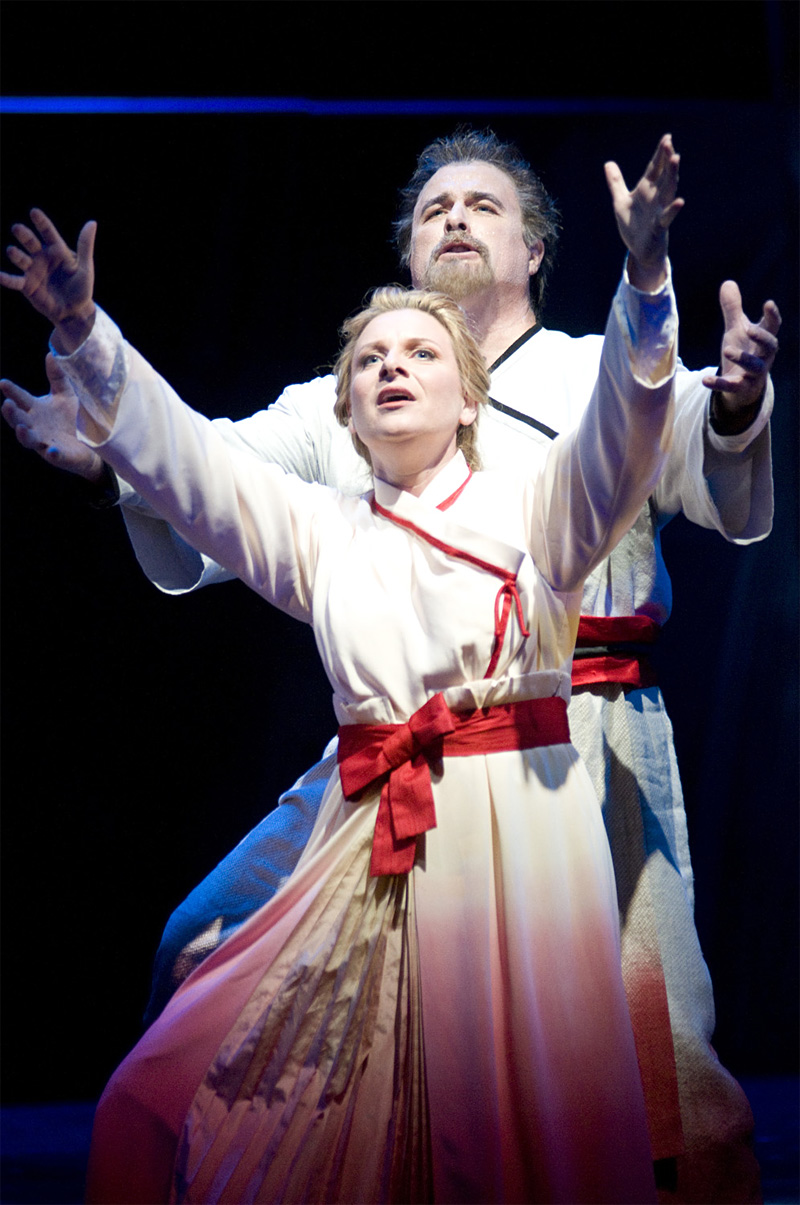Seattle Opera has staked its reputation, in large part, on Wagner, which means it has also staked its reputation on finding a steady supply of Wagner singers. (This was one of the motives behind the International Wagner Competition the company established in 2006.)
So the anticipation is a little higher whenever an unknown singer makes a debut in Wagner: Will the newbie become a reliable, familiar face on the roster, another Jane Eaglen, Greer Grimsley, or Stephen Milling? For Seattle audiences always looking ahead to the next Ring, the mental casting game is a favorite diversion, and I couldn’t have been the only listener on Saturday, as SO unveiled its new production of Tristan und Isolde, trying to imagine Swedish soprano Annalena Persson, making her U.S. debut that night, as 2013’s Brünnhilde.
The two Wagner heroines are soul sisters: Tenderness, heroic self-sacrifice, and granitic defiance are just three of the diverse traits women playing Isolde and Brünnhilde must convincingly portray. But there’s a difference—emotionally, Isolde begins her opera the way Brünnhilde ends hers, furious at her betrayal by the tenor lead, the knight Tristan (whom Isolde’s fallen for; they have a complicated history), taking her against her will to wed King Marke.
Intense and a bit unhinged, Persson seizes the role in her jaws right from the start. On opening night, her somewhat shrill and icy high notes warmed up as the evening advanced—one of those interesting occurrences where a vocal tic is a dramatic boon, since the character moves from anger to love, and we could hear it. Though clarity of pitch still remained a little elusive at the top of her range, what I heard and saw indicated Persson would make a fab Brünnhilde.
Clifton Forbis isn’t quite new to Seattle Opera, though we haven’t heard him here since a 2001 Tosca. To Tristan he brings a masculine, deep-pile tenor and an earthy, rather dark, dramatic presence that balances and combusts with Persson’s Isolde; their Act 2 love duet soars like a rocket. As blocked by director Peter Kazaras, the two never touch; the frustration mounts as the music and the erotic intoxication do.
Surrounding these newcomers are Milling, Grimsley, and Margaret Jane Wray, veterans of recent Rings. Never in McCaw Hall do you hear a steadier, lovelier, more easily powerful baritone than Milling’s (he’s Marke, who turns out to be not such a bad guy after all). Grimsley, who never disappoints, shrewdly wrings all the drama and sympathy one can from the somewhat hapless role of Tristan’s sidekick Kurwenal. Wray’s conversational, emotionally direct delivery makes her ideal as Brangäne, Isolde’s handmaid (and the plot-driver, as she slips the two leads the love potion that dooms them)—and her voice has a steely carrying power that pierces the lush orchestration.
White, gray, black, and lurid scarlet accents make a stimulating color scheme for Robert Israel’s sets and costumes—the sole exception is the golden bowl of love potion, occasion for a small but splendid bit of stage magic. The men’s chorus remains unseen offstage, but their outbursts sound fantastic nevertheless. In fact, between them, the vocally sumptuous cast, and the gleaming, stupendous-sounding orchestra led by Asher Fisch, Saturday night provided more moments of sheer sonic thrill than just about any SO production I can recall.







